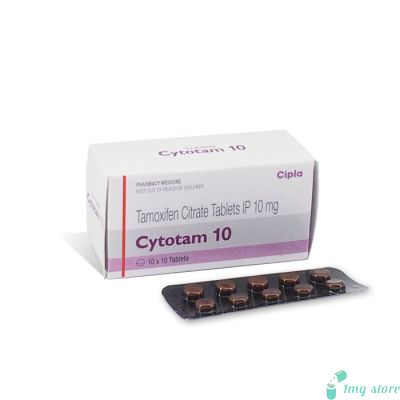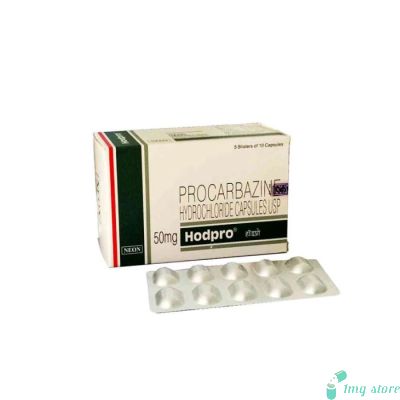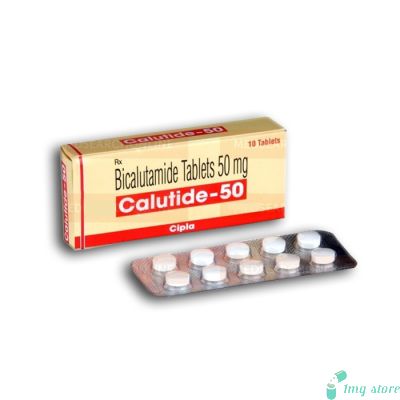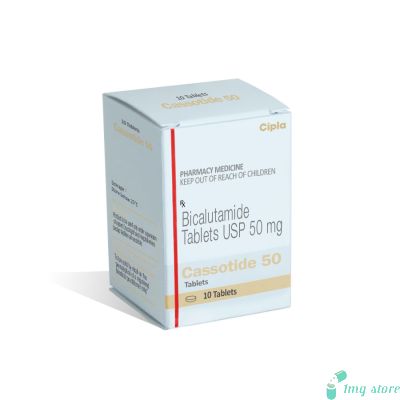Cytoblastin Injection (Vinblastine)
Vinblastine Injection, also known by its brand name Cytoblastin or Velban, is a medication that belongs to a class of drugs called vinca alkaloids. It is primarily used in the treatment of various types of cancers, including Hodgkin's disease, non-Hodgkin lymphoma, testicular cancer, and breast cancer.
Introduction to Vinblastine Injection (Cytoblastin)
Vinblastine Injection, also known by its brand name Cytoblastin or Velban, is a medication that belongs to a class of drugs called vinca alkaloids. It is primarily used in the treatment of various types of cancers, including Hodgkin's disease, non-Hodgkin lymphoma, testicular cancer, and breast cancer. Vinblastine is administered via injection and works by interfering with the growth and spread of cancer cells in the body. In this article, we will explore the dosage information, uses, and benefits of Vinblastine Injection.
Dosage Information:
Vinblastine Injection is a prescription medication that should only be administered under the supervision of a healthcare professional experienced in the use of cancer chemotherapeutic agents. The dosage and administration schedule may vary depending on the specific type of cancer being treated and the individual patient's condition. The recommended dose of Vinblastine Injection for adults is typically in the range of 3 to 18.5 mg per square meter of body surface area, given intravenously once a week or once every two weeks. The dose may be adjusted based on the patient's response to treatment and any adverse effects experienced. It is important to follow the prescribed dosage instructions carefully and not exceed the recommended dose. Vinblastine Injection should be administered slowly into a vein over a period of 6 to 10 minutes to minimize the risk of side effects.
Benefits of Vinblastine Injection:
Vinblastine Injection offers several benefits in the treatment of cancer. By disrupting the growth and division of cancer cells, it helps to inhibit tumor progression and shrink existing tumors. The use of Vinblastine Injection as part of combination chemotherapy regimens has shown improved response rates and long-term survival outcomes in patients with various types of cancer. Additionally, Vinblastine Injection is often well-tolerated by patients, with manageable side effects that can be effectively managed by healthcare professionals. It is important for patients to discuss potential side effects and management strategies with their healthcare providers.
Vinblastine Injection, marketed as Cytoblastin or Velban, is an important medication used in the treatment of various types of cancers. With its ability to impede the growth and spread of cancer cells, Vinblastine Injection plays a crucial role in combination chemotherapy regimens for Hodgkin's disease, non-Hodgkin lymphoma, testicular cancer, and breast cancer. The proper dosage and administration of Vinblastine Injection should be closely monitored by a healthcare professional to ensure optimal treatment outcomes. If you require Vinblastine Injection, consult with your healthcare provider or a licensed pharmacy for availability and safe usage guidelines.
Vinblastine Injection, as an Anti-Cancer medication, is a Life-Saving drug used in the treatment of various types of cancers. It is important to take precautions before starting treatment, including discussing any allergies, existing blood disorders, liver or kidney conditions, and pregnancy or breastfeeding concerns with your healthcare provider. Vinblastine Injection can interact with other medications and vaccines, so it is essential to inform your healthcare provider about all the medications you are taking. Common side effects of Vinblastine Injection include bone marrow suppression, gastrointestinal effects, neurological effects, hair loss, fatigue, and the potential for allergic reactions. Regular monitoring of blood counts and communication with your healthcare provider is crucial during the course of treatment. Despite the potential side effects, Vinblastine Injection plays a significant role in fighting cancer and improving patient outcomes in the field of women's care.
Some of the primary precautionary measures to be taken while using Cytoblastin Injection (Vinblastine)
Allergies: Before using Vinblastine Injection, inform your healthcare provider if you have any known allergies to vinblastine or other vinca alkaloids. Allergic reactions to Vinblastine Injection are rare but can be serious. It is important to disclose any history of allergic reactions to medications or other substances to ensure safe administration.
Blood Disorders: Vinblastine Injection (Cytoblastin) can affect the bone marrow, leading to decreased production of blood cells. This may increase the risk of developing anemia, bleeding, or infection. Prior to starting treatment, your healthcare provider will monitor your blood counts regularly to ensure that you are not at an increased risk of complications.
Liver and Kidney Function: Vinblastine Injection/Velban is primarily eliminated from the body through the liver and kidneys. If you have impaired liver or kidney function, your healthcare provider may need to adjust the dosage of Vinblastine Injection to prevent potential toxicity. It is crucial to inform your healthcare provider about any pre-existing liver or kidney conditions.
Pregnancy and Breastfeeding: Vinblastine Injection is classified as a pregnancy category D drug, which means it may cause harm to a developing fetus. If you are pregnant or planning to become pregnant, it is important to discuss the potential risks and benefits of Vinblastine Injection with your healthcare provider. Additionally, Vinblastine Injection can pass into breast milk and may harm a nursing infant, so breastfeeding should be avoided during treatment.
Fertility Concerns: Vinblastine Injection can have an impact on fertility in both men and women. It is important to discuss fertility preservation options with your healthcare provider before starting treatment, especially if you plan to have children in the future.
Some of the specific indications for Vinblastine Injection include:
Hodgkin's Disease: Vinblastine Injection is often used as a component of the multi-agent chemotherapy regimen known as ABVD (Adriamycin, bleomycin, vinblastine, and dacarbazine) in the treatment of Hodgkin's disease. This regimen has shown significant success in achieving remission and improving long-term survival rates.
Non-Hodgkin Lymphoma: Vinblastine Injection/Velban may be used in combination with other chemotherapeutic agents to treat various subtypes of non-Hodgkin lymphoma, including diffuse large B-cell lymphoma and follicular lymphoma.
Testicular Cancer: Vinblastine Injection (Cytoblastin) is a key component of the BEP regimen (bleomycin, etoposide, and cisplatin) used in the treatment of testicular cancer. This combination therapy has demonstrated high cure rates in patients with both early-stage and advanced testicular cancer.
Breast Cancer: In Women's Care, Vinblastine Injection may be utilized in combination with other chemotherapy drugs, such as doxorubicin and cyclophosphamide, for the treatment of advanced or metastatic breast cancer.
Some of the Notable after-effects of using Cytoblastin Injection (Vinblastine)
Bone Marrow Suppression: Vinblastine Injection can suppress the bone marrow's ability to produce blood cells, leading to a decrease in red blood cells, white blood cells, and platelets. This can result in anemia, increased susceptibility to infections, and a higher risk of bleeding. Regular blood tests will be conducted to monitor your blood cell counts during treatment.
Gastrointestinal Effects: Common gastrointestinal side effects of Vinblastine Injection include nausea, vomiting, diarrhea, and constipation. These symptoms can usually be managed with medications and dietary modifications. It is important to report any severe or persistent gastrointestinal symptoms to your healthcare provider.
Neurological Effects: Vinblastine Injection/Velban may cause neurotoxicity, leading to symptoms such as numbness, tingling, or weakness in the hands and feet (peripheral neuropathy). In rare cases, more severe neurological side effects, including muscle weakness or difficulty walking, may occur. Promptly report any new or worsening neurological symptoms to your healthcare provider.
Hair Loss: Temporary hair loss (alopecia) is a common side effect of Vinblastine Injection (Cytoblastin). Hair usually grows back once treatment is completed, although the regrowth rate may vary from person to person.
Fatigue: Feeling tired or experiencing fatigue is a common side effect of Vinblastine Injection. It is important to get adequate rest and conserve energy during treatment. If fatigue becomes severe or persistent, inform your healthcare provider.
Allergic Reactions: Although rare, allergic reactions to Vinblastine Injection can occur. Symptoms may include rash, itching, swelling, dizziness, or difficulty breathing. Seek immediate medical attention if you experience any signs of an allergic reaction.
Frequently Asked Quries while using Vinblastine Injection (Cytoblastin)
Can I purchase Vinblastine Injection (Cytoblastin) without a prescription?
No, Vinblastine Injection is a prescription medication used for the treatment of various types of cancers. It is not available for purchase without a valid prescription from a licensed healthcare professional. To ensure the safe and appropriate use of Vinblastine Injection, it is important to consult with your healthcare provider who can evaluate your condition and prescribe the medication if necessary.
Are there any alternative treatment options to Vinblastine Injection/Velban for cancer?
Yes, depending on the type and stage of cancer, there may be alternative treatment options available. Cancer treatment is highly individualized, and the choice of therapy depends on factors such as cancer type, stage, and patient-specific characteristics. Your healthcare provider will assess your condition and discuss the most suitable treatment options, which may include other chemotherapy drugs, radiation therapy, targeted therapies, immunotherapies, or surgical interventions.
Can Vinblastine Injection be used during pregnancy?
Vinblastine Injection is classified as a pregnancy category D drug, which means it may cause harm to a developing fetus. It is generally not recommended for use during pregnancy unless the potential benefits outweigh the risks. If you are pregnant or planning to become pregnant, it is essential to discuss the potential risks and benefits of Vinblastine Injection with your healthcare provider to make an informed decision about the best course of action.
What should I do if I miss a dose of Vinblastine Injection?
If you miss a scheduled dose of Vinblastine Injection, it is important to contact your healthcare provider or nurse promptly. They will provide guidance on the next steps, which may involve rescheduling the missed dose or adjusting the treatment schedule. It is crucial not to administer an extra dose to make up for the missed one without consulting a healthcare professional.
Can Vinblastine Injection interact with herbal supplements?
Yes, Vinblastine Injection can interact with herbal supplements, just like it can interact with other medications. Some herbal supplements may have the potential to alter the metabolism or effectiveness of Vinblastine Injection. It is important to inform your healthcare provider about any herbal supplements you are taking to ensure there are no potential interactions. Your healthcare provider can provide guidance on which supplements are safe to use during treatment with Vinblastine Injection.
Primary Drug Interconnections with Cytoblastin Injection (Vinblastine)
CYP3A4 Inhibitors and Inducers: Vinblastine is metabolized by the enzyme CYP3A4 in the liver. Drugs that inhibit or induce this enzyme may affect the metabolism and clearance of Vinblastine Injection. It is important to inform your healthcare provider about all medications, including prescription, over-the-counter, and herbal products, that you are taking to avoid potential interactions.
Vaccines: Vinblastine Injection/Velban can weaken the immune system, which may reduce the effectiveness of certain vaccines. It is recommended to complete any necessary vaccinations before starting treatment with Vinblastine Injection. Additionally, live vaccines should be avoided during treatment.
Other Chemotherapy Agents: Vinblastine Injection (Cytoblastin) is often used in combination with other chemotherapy drugs. Your healthcare provider will carefully evaluate the compatibility and potential interactions between Vinblastine Injection and other anti-cancer medications to ensure optimal treatment outcomes.
| Manufacturer | : | Cipla Pharma, India |
| Equivalent Brand | : | Velban |
| Generic Search | : | Vinblastine |













